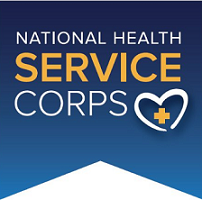Post-traumatic stress disorder (PTSD) is a mental health condition, often caused by past traumas, that can create symptoms such as anxiety, nightmares, flashbacks, intrusive thoughts and mood changes. Being diagnosed with this condition may feel like a life sentence, but it is possible to get customized help with the assistance of a trained mental health professional.
For those dealing with post-traumatic stress disorder, finding the right treatment plan is essential to alleviate symptoms, improve function and return to a fulfilling life. Because PTSD does not have a definitive cure, it is important that sufferers work with mental health professionals to determine which treatment options are the best fit. Luckily, there are several different therapy techniques, medications and coping methods available, so it is possible to customize your treatment plan to fit your unique needs.
Treat PTSD With Psychotherapy
The primary treatment of PTSD is psychotherapy, which can be effective in helping you return to a feeling of control. Also called talk therapy, this treatment method requires the assistance of a qualified therapist who can guide you through the process. Some of the most common types of psychotherapy used for PTSD include the following:
Cognitive Behavioral Therapy (CBT)
This therapy helps patients see and understand the connection between thoughts and behaviors. Working with a therapist, you determine the negative thought patterns that are creating unhealthy feelings or behaviors and find ways to change those patterns for a greater sense of control.
Cognitive Processing Therapy (CPT)
This specific type of cognitive therapy focuses more intently on the specific trauma causing your PTSD and how you are perceiving it. A therapist provides guidance as you process the event and isolate “stuck points” or thoughts about the trauma that are preventing recovery.
Prolonged Exposure Therapy
Many people with PTSD actively try to avoid thinking about a traumatic event, but prolonged exposure therapy encourages you to instead face the trauma. Exposure therapy professionals help you gently work through memories, thoughts and feelings connected to traumatic events.
Medication
Typically used along with therapy, medication is helpful in reducing or controlling symptoms of PTSD. Some of the most commonly prescribed include:
- SSRIs and SNRIs
- Anti-anxiety medications
- Anti-psychotics
- Beta-blockers
Currently, the FDA has only approved Zoloft and Paxil, two SSRIs, as treatment options for PTSD, but other medications are often necessary to help with symptoms related to the condition. For example, your PTSD may cause you to feel anxious, so you may be prescribed anti-anxiety medication to help you get that symptom under control.
It often takes time to figure out which medications, as well as which dosage, will work best for your individual case. You’ll need to work closely with your therapist and doctor to create a schedule that is the right fit.
Alternative Treatments
Some people with PTSD find that there are alternative treatment options that serve as fulfilling, complementary therapies to the more traditional options. Acupuncture is one such option, as it has been found to help reduce anxiety and stress. Others with a PTSD diagnosis enjoy participating in trauma-sensitive yoga as a way to relax and connect with their bodies.

Cottonbro Studio on Pexels
Coping Tools
For some, part of an effective treatment plan includes additional coping methods, such as support groups, while others find value in regular exercise. There are numerous coping tools that can make PTSD manageable, once a successful treatment plan is in place.
No matter your specific treatment plan, it is important to stick with what you and your therapist have found works best for you. While you may not achieve immediate relief from all of your symptoms, continuing therapy, consistently taking your medications and finding coping strategies that improve your life are all essential treatments of PTSD.
If you are suffering from PTSD or are experiencing symptoms of PTSD, the professionals at Bear River Mental Health can help. Contact us today to make an appointment.



